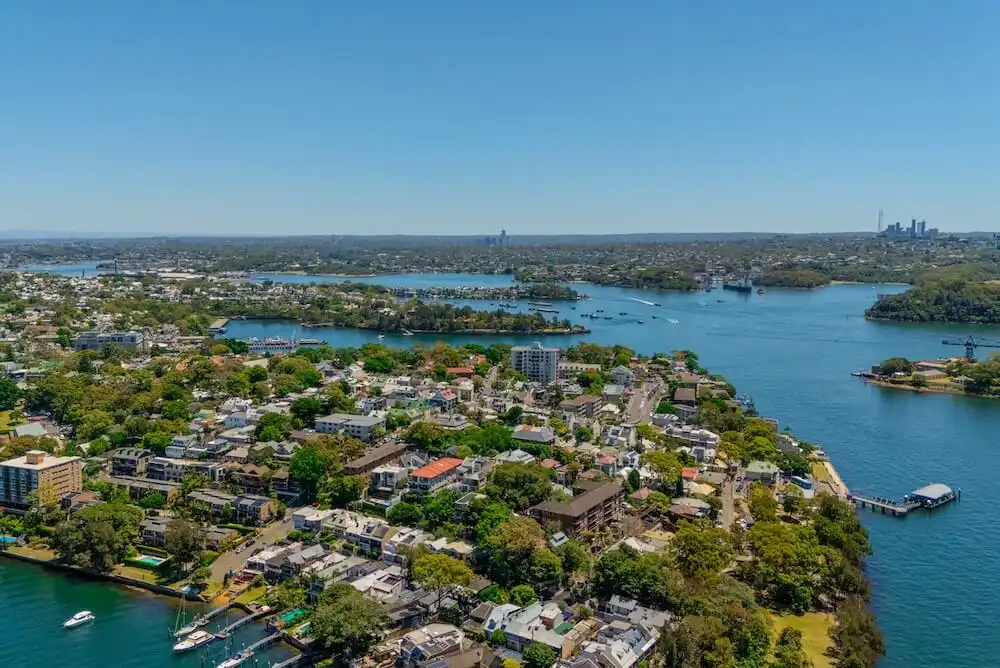Price growth could return to Australian property in 2023
After three years of wild turbulence for the Australian property market, there are signs that the uncertainty and instability may make way for a less bumpy year ahead.
In fact, one leading market analyst sees price growth returning in 2023, forecasting gains of up to +9 per cent nationally.
With the bulk of interest rate hikes now behind us and a number of factors potentially looking to buoy property this year, could prices start increasing sooner than the banks think?
What's driving the property market in 2023?
In 2021, record-low interest rates combined with built-up household savings through the pandemic sparked one of the biggest property booms in Australian history.
2022 was marked by the sudden, rapid rise of interest rates which put a serious dampener on consumer confidence and saw those historic price gains winding back somewhat.
The new year ahead is also likely to be driven by the movement of interest rates, but the expectation is that the majority of the hikes are now over — and rate cuts could arrive before 2024.
PropTrack senior economist Eleanor Creagh explained that, "if interest rates peak in 2023 as expected, price falls are likely to ease, with values stabilising as uncertainty reduces."
There are also several key factors that she said would help to support property prices as the year unfolds.
"The downward pressure from rate rises will be countered to a degree by positive demand effects that stem from tight rental markets and rental price pressures, rebounding foreign migration, stronger wages growth, and over the long run, housing supply pressures," she said.
The rental crisis, which will only worsen as immigration returns, could have a significant impact on the market as investors are drawn back to the table.
"If rents continue to outpace housing values, yields will continue to recover enticing investors back into action," she said.
"Investor activity may begin to increase, likely underpinning the apartment market, particularly with the value units offer relative to other property types. Tight rental market conditions may also encourage others into home ownership and together with investor activity, strong rent growth has the potential to buffer price falls."
Where and when will interest rates peak?
It's the biggest question surrounding the housing market right now: what comes next for interest rates?
The big four banks speak loudest when it comes to cash rate forecasts, and there's still a fairly wide array of predictions between them.
| Bank | Peak cash rate | Month of peak |
|---|---|---|
| CBA | 3.35% | February 2023 |
| NAB | 3.60% | March 2023 |
| Westpac | 3.85% | May 2023 |
| ANZ | 3.85% | May 2023 |
With the cash rate currently set at 3.10 per cent, CBA is forecasting just one further 0.25 per cent hike before we hit a peak rate of 3.35 per cent in February.
NAB sits in the middle, expecting things well level off in March at 3.60 per cent, while Westpac and ANZ think a 3.85 per cent terminal rate in May is on the cards.
Considering none of the banks' chief economists are forecasting the cash rate to move beyond 4 per cent, the vast majority of the rate hikes this cycle should now be behind us.
CoreLogic's latest report noted that "as interest rates peak and inflation eases, housing values are likely to stabilise."
It did, however, say that we may have to see rate cuts or other forms of stimulus before a genuine market recovery could begin.
When might the market bounce back?
The big banks have a pessimistic view of what's to come in 2023, forecasting further price declines in the double digits.
SQM Research's managing director Louis Christopher has a different outlook, though, having presented four possible scenarios that mostly predict growth returning to the Australian property market.

Each of the four scenarios in SQM's Housing Boom and Bust Report is primarily based around what happens with inflation and interest rates, with unemployment figures factoring in too.
In Mr Christopher's 'base case', which is dependent on the cash rate peaking no higher than 4 per cent, capital city homes would rise between +3 and +7 per cent in value by the end of 2023, with Sydney and Perth leading the way.
The best-case scenario could see growth of up to +9 per cent, while the worst-case prediction is a -6 per cent decline for the year.
"I believe the markets can recover, and they’ve been showing some signs of recovery, such as the modest rise in auction clearance rates and asking prices, even while we’ve had these cash rate increases," Mr Christopher told the AFR.
"Sydney is expected to lead the recovery driven by the surge in underlying demand for residential property and its diverse economy."
When is the right time to sell?
If you're unsure about when to list, we get it. It’s a huge decision that deserves all your careful consideration weighing up the advantages and disadvantages for either scenario.
Even if the market feels uncertain, it’s important to remember that it’s all relative and the market doesn’t stop. There will always be properties being listed and buyers out there wanting to purchase a home.
It's also crucial to recognise that conditions will vary from suburb to suburb, so it’s important to understand your own local market — and to do that, you really need to get granular.
Whether your property is impacted by price gains or falls depends on many factors including location, property type, and whether your home falls into the higher or lower end of the market.
If you’re seriously considering selling your home, you need to do your research. As a first step, get a market value estimate of what your home might be worth today.
Speaking to a top local agent is also one of the best ways to get a thorough understanding of how buyers are behaving in your suburb, what kinds of results are still being achieved, and what the best strategy could be for you to still get that dream sale result.
At the very least, it’s helpful to hear what properties are selling for, what demand is currently like for homes like yours, and to get a no-obligation appraisal of what your home might sell for in the current market. A top agent who knows your market like the back of their hand will be able to help you along the journey.
1. RateCity, 'How high will rates go? Here's what experts think about the RBA cash rate', 22 December 2022
https://www.ratecity.com.au/home-loans/mortgage-news/high-will-rates-go-here-experts-think-rba-cash-rate
2. CoreLogic, 'CoreLogic Home Value Index: Australian housing values down -5.3% over 2022', 2 January 2023
https://www.corelogic.com.au/news-research/news/2023/corelogic-home-value-index-australian-housing-values-down-5.3-over-2022
3. SQM Research, 'Christopher's Housing Boom And Bust Report 2023, 29 November 2022
https://sqmresearch.com.au/boombustreport.php
4. Australian Financial Review, 'Rate pause to trigger 9pc rise in Sydney house prices', 29 November 2022
https://www.afr.com/property/residential/rate-pause-to-trigger-9pc-rise-in-sydney-house-prices-20221128-p5c1r9






